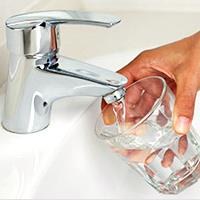(STRASBOURG) – The European Parliament backed plans on Tuesday to improve consumers’ trust in drinking water from the tap, which is much cheaper and cleaner for the environment compared to bottled water.
The legislation, voted in by MEPs at a plenary session, tightens the maximum limits for certain pollutants such as lead (to be reduced by half), harmful bacteria, and introduces new caps for certain endocrine disruptors. It also puts levels of microplastics, an emerging concern, under monitoring.
According to the European Commission, lower consumption of bottled water could help EU households save more than 600 million per year. If confidence in tap water improves, citizens can also contribute to reducing plastic waste from bottled water, including marine litter.
The draft legislation provides for EU Member States to take measures to provide universal access to clean water in the EU and improve water access in cities and public places, by setting up free fountains where technically feasible and proportionate. They should also encourage tap water to be provided in restaurants, canteens and catering services for free or for a low service fee.
Following-up on a citizens’ initiative Right2Water, MEPs reiterated that Member States should focus on the needs of vulnerable groups in society. They should identify people without access, or with limited access to water, including vulnerable and marginalised groups, and assess ways to improve their access. They should also inform them clearly about how to connect to the distribution network or about alternative means to have access to such water.
“The way we use water will define the future of humanity,” said Parliament’s rapporteur Michel Dantin MEP: “Everyone should have access to clean and good quality water, and we should do our utmost to make it as affordable as possible for everyone.”
Increasing use of tap water for drinking should also contribute to reducing plastic usage and litter. Plastic bottles are one of the most common single use plastic items found on European beaches.
Following adoption of the report, Parliament will enter into negotiations with Council once EU ministers have set their own position on the file.
Further information, European Parliament



